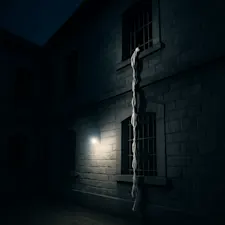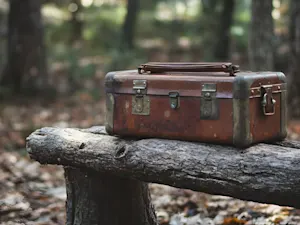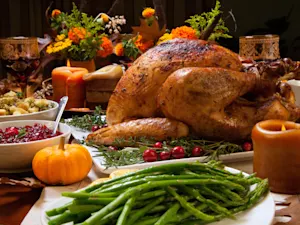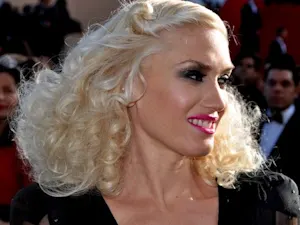
Jane Goodall Dies at 91
Jane Goodall, 2010. Photo courtesy of Nikeush under CC BY-SA 4.0.
Jane Goodall's passing marks the end of an era for science and conservation. The iconic primatologist, whose groundbreaking work forever changed how we see chimpanzees and our place in the natural world, died at 91 while on a speaking tour in California. Her death from natural causes closes a remarkable chapter of quiet courage, relentless curiosity, and a lifetime devoted to bridging the gap between humans and animals.
From English Childhood Dreams to African Jungles
Born in London in 1934, Jane Goodall's fascination with animals began early. She was a curious child who once reportedly hid in a henhouse to witness a chicken lay an egg, a moment that foreshadowed her lifelong passion for observing nature up close. Inspired by books like "Tarzan of the Apes," she dreamed of living in Africa among wild animals. Despite lacking a college degree, her determination led her to Kenya in 1957, where she met anthropologist Louis Leakey. Recognizing her potential, Leakey sent her to Tanzania to study chimpanzees in the wild, a decision that would revolutionize primatology.
Her early days in Gombe Stream National Park were anything but glamorous. British authorities insisted she bring a companion, so her mother accompanied her. The chimps initially fled at her approach, and she battled illness and the harsh realities of the jungle. Yet, Goodall's persistence paid off. She gained the trust of the chimpanzees, naming them instead of numbering them, a radical departure from scientific norms that humanized her subjects and revealed their complex personalities.
Shattering Scientific Dogma
Goodall's observations stunned the scientific community. She documented chimpanzees using tools, a trait previously thought to be uniquely human. She witnessed their emotions — joy, grief, humor — and their social bonds, from mother-infant relationships to fierce dominance struggles. These discoveries blurred the line between humans and animals, challenging long-held beliefs and reshaping our understanding of evolution and behavior.
Her work was propelled into the public eye through National Geographic and documentaries, turning her into a rare celebrity scientist. She became a symbol of hope and curiosity, inspiring generations to care about wildlife and the environment. Her life was a blend of scientific rigor and heartfelt advocacy, a combination that made her message resonate far beyond academic circles.
A Life of Love, Loss, and Legacy
Goodall's personal life was intertwined with her work. She married wildlife filmmaker Baron Hugo van Lawick, who documented her early years in the jungle. They had a son, Hugo, but eventually divorced. Later, she married Tanzanian parks director Derek Bryceson, who died young. Despite these losses, Goodall remained fiercely independent, once saying she didn't need a husband to complete her life.
Her legacy extends beyond research. In 1977, she founded the Jane Goodall Institute to support conservation and community development in Africa. She also launched Roots & Shoots, a global youth program encouraging young people to protect the environment. According to her institute, Goodall "traveled the world nearly 300 days a year" until she died, as reported by PEOPLE — speaking passionately about climate change and conservation, balancing the grim realities with a message of hope.
The Final Journey: Urgency and Hope
Goodall's death came while she was on a U.S. speaking tour, a testament to her lifelong commitment to education and advocacy. She was scheduled to launch a tree-planting event in California, symbolizing her enduring belief in action and renewal. Her institute described her life and work as leaving an indelible mark not only on science but on humanity's relationship with the natural world.
Her approach to activism was unique. She cautioned against despair and aggressive tactics, urging people to focus on present choices that build a better future. Her message was clear: the window for change is still open, but only if we act together.
A Star Among Stars
Goodall's influence reached Hollywood and global leaders alike. She counted environmental champions like Leonardo DiCaprio, Angelina Jolie, and Prince Harry among her admirers. In 2025, she received the U.S. Presidential Medal of Freedom from President Joe Biden, a fitting tribute to a life that transcended science to become a beacon of hope and courage.
Her story is one of quiet bravery, a woman who ventured into the unknown and changed the world's view of nature forever. Jane Goodall's journey from a curious English girl to a global icon reminds us that one person's passion can ignite a movement. As we remember her, we are called to carry forward her legacy of compassion, curiosity, and unwavering hope for the planet.
Her final chapter may have closed, but the story she wrote with the chimps of Gombe and the hearts of millions will echo for generations to come. The world has lost a trailblazer, but her light continues to shine, urging us all to look deeper, care more, and act now.
References: Jane Goodall Dies of Natural Causes on Speaking Tour in California | Jane Goodall, pioneering conservationist and primatologist, dies at 91 | Wildlife advocate and primate expert Jane Goodall dies at 91























